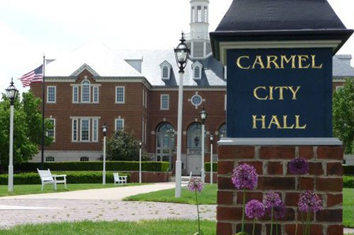Subscriber Benefit
As a subscriber you can listen to articles at work, in the car, or while you work out. Subscribe NowThe Carmel City Council will have more oversight over a funding source used to support park construction after councilors this week unanimously approved changes to an ordinance over the way park impact fees are allocated.
Park impact fees will now be deposited into an impact fee fund designated by the Carmel City Council, and park impact fee credits provided as a bargaining chip to developers will need to be approved by council members.
“This new process will ensure that the parks and recreation impact fees are used to develop new park assets and new park infrastructure within the community, and it creates a transparent process with proper oversight,” council member Rich Taylor said in written remarks.
Taylor added the new ordinance will boost the city’s effort to build the future Bear Creek Park near West 146th Street and Shelbourne Road and Thomas Marcuccilli Nature Park near East 146th Street and River Road.
In Carmel, park impact fees are charged to developers to support park construction and offset the impact of population increases that result from residential construction.
The city has in some cases also waived park impact fees, allowing developers to instead pay a credit to the Carmel Redevelopment Commission, which has spent the funds developing plazas and green space in the city’s urban core.
The city’s downtown parks include Midtown Plaza, Carter Green, Monon Boulevard and Monon Greenway, the Kawachinagano Japanese Garden and Freedom Circle Veterans Memorial.
Carmel charges developers $4,882 per dwelling, the most in Hamilton County; a 250-unit apartment building would result in more than $1.2 million for park construction and maintenance. By comparison, Fishers charges developers $3,513 per single-family dwelling and $2,108 per multifamily unit.
In December, the Carmel Clay Board of Parks & Recreation filed a lawsuit—that it called off earlier this year—against the city in a dispute over how Carmel should fund parks and other public greenspaces.
Carmel Clay Parks & Recreation receives some funding from the city, but it is a separate entity created in 1991 by an interlocal agreement between the city and Clay Township, and it does not answer to the Mayor’s Office.
The parks board argued in the lawsuit filed Dec. 5 in Hamilton Superior Court that the city improperly diverted about $12.8 million to the Carmel Redevelopment Commission to be used in smaller park spaces in the city’s urban core to the detriment of larger, traditional parks throughout the city.
The complaint said the Carmel Board of Public Works had in some cases waived impact fees and instead directed developers to pay an equal amount into a Carmel Redevelopment Commission account, which was used to fund new downtown plazas and greenspaces.
Prior to 2010, the parks board was the only entity that could grant impact fee waivers. The Carmel City Council that year expanded the right to the Carmel Board of Public Works, which is made up of the city’s mayor and two mayoral appointees.
The parks board in March decided to end the lawsuit because the Carmel City Council started the process toward making changes to the approval process for future park impact fee credits.
Under the new ordinance, the Carmel City Council will oversee all park impact fee spending, including the issuance of credits to developers.
If Carmel Clay Parks & Recreation or the Carmel Redevelopment Commission want to use park impact fees to fund a project, their directors—Michael Klitzing and Henry Mestetsky—would be required to discuss their needs with each other and then approach the city council for approval.
“[The park impact fee ordinance] has already demonstrated its merit by the increased communication between Carmel Clay Parks, the Carmel Redevelopment Commission, and individual developers,” City Council member Matthew Snyder said in written remarks.
Please enable JavaScript to view this content.


Why Clay Township even exists when it has the same borders as Carmel is beyond me.
Townships like this should be ended, and services consolidated into the city.